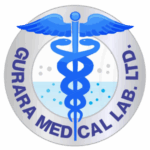Here’s a tough pill to swallow (pun intended): antibiotics—the very drugs we rely on to fight infections—are becoming less effective. And here’s the part that stings: we’re part of the problem.
In Nigeria, it’s far too common to self-diagnose and self-medicate. Walk into any pharmacy, describe your symptoms, and you can easily walk out with a cocktail of antibiotics—no prescription, no lab test, no questions asked. While it might feel convenient, this habit is one of the key drivers behind the silent but deadly threat of Antimicrobial Resistance (AMR).
But there’s hope. Medical laboratories are on the frontlines of this battle, and understanding their role could save countless lives.
Why is AMR Such a Big Deal?
Imagine a world where simple infections—like UTIs, wounds, or even sore throats—no longer respond to treatment. That’s the reality AMR is inching us toward.
According to the World Health Organization (WHO), antimicrobial resistance was directly responsible for 1.27 million deaths and contributed to 4.95 million deaths globally in 2019. In Nigeria, the numbers are alarming too—yet underreported due to limited surveillance.
If left unchecked, AMR could:
-
Make surgeries and chemotherapy far riskier
-
Increase hospital stays and healthcare costs
-
Lead to widespread treatment failures
-
Result in higher mortality rates, especially among vulnerable populations like children and the elderly
What’s Driving AMR in Nigeria?
Several factors are fueling the AMR crisis locally:
-
Over-the-counter access to antibiotics
-
Incomplete dosages (stopping meds as soon as you feel better)
-
Poor diagnostic practices (treating symptoms without testing)
-
Use of antibiotics in livestock and agriculture
-
Limited public awareness
Unfortunately, this “treat first, test never” culture is part of what’s causing bacteria to evolve and fight back harder than ever.
How Medical Laboratories Help Fight Back
This is where medical labs come in—not just as test centers, but as silent heroes in the AMR war.
1. Accurate Diagnosis
Rather than guessing based on symptoms, labs analyze blood, urine, stool, sputum, or wound swabs to identify the specific pathogen causing the illness. This ensures you’re not taking antibiotics for viral infections like the flu or COVID-19, where they’re completely useless.
2. Antibiotic Sensitivity Testing (AST)
Let’s say a lab detects bacteria in your sample. The next step is sensitivity testing—a process that checks which antibiotics the bacteria respond to, and which ones they resist.
This helps doctors prescribe the right drug at the right dose, reducing trial-and-error treatment and unnecessary use of broad-spectrum antibiotics.
👉 Real Data: A study by the Nigerian Institute of Medical Research found that over 60% of E. coli strains isolated from patients were resistant to common antibiotics like ampicillin and cotrimoxazole. That’s a warning sign we can’t ignore.
3. Surveillance and Data Collection
Medical labs track resistance patterns over time. This surveillance data is shared with public health agencies and used to:
-
Monitor AMR trends by region
-
Detect and control outbreaks
-
Develop treatment guidelines and policies
-
Inform community-level education campaigns
Some labs even contribute to global databases like GLASS (Global Antimicrobial Resistance Surveillance System).
Real-Life Impact: Why This Matters
Here’s a quick scenario:
Let’s say two patients show up at a hospital with similar symptoms—high fever, body aches, and fatigue. One is treated with antibiotics immediately without testing. The other is sent to the lab first.
Turns out, the first patient had a viral infection. The antibiotics not only failed but contributed to resistance. Meanwhile, the second patient, diagnosed with a bacterial infection and given targeted antibiotics, recovers quickly and safely.
That’s the power of testing.
What Can YOU Do to Help?
Antimicrobial resistance isn’t just a government or hospital issue—it starts with you and me. Here’s how you can do your part:
✅ Never self-medicate with antibiotics
✅ Don’t demand antibiotics unless your doctor recommends it
✅ Always complete your full prescription—even if you feel better
✅ Get tested before starting treatment
✅ Avoid using leftover antibiotics from previous treatments
✅ Educate others about the dangers of AMR
What Medical Labs Need to Win This Fight
To stay ahead in the fight against AMR, labs in Nigeria need more than just microscopes and technicians. They need:
-
Better funding and infrastructure
-
Standardized equipment and protocols
-
Ongoing training for lab personnel
-
Stronger collaboration between labs and hospitals
-
Public-private partnerships to expand access to diagnostic testing
With the right support, our labs can become strongholds of data-driven care and resistance monitoring.
Final Word: Test Before You Treat
Antibiotics are powerful tools—but only when used wisely. Think of medical laboratories as the compass that guides doctors in the right direction. Without them, we’re just taking shots in the dark.
So next time you or someone you love is feeling sick, don’t gamble with guesswork. Visit a trusted medical lab, get tested, and get treated the right way.
Your health—and the health of future generations—depends on it.


